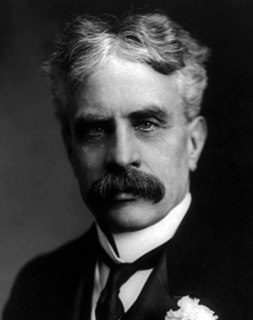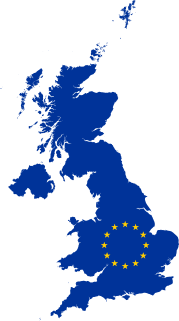Related Research Articles

The Free Democratic Party is a classical-liberal political party in Germany. The FDP is led by Christian Lindner.

The Anti-Revolutionary Party was a Protestant conservative and Christian democratic political party in the Netherlands. The party was founded in 1879 by Abraham Kuyper, a neo-Calvinist theologian and minister. In 1980 the party merged with the Catholic People's Party (KVP) and the Christian Historical Union (CHU) to form the Christian Democratic Appeal (CDA).

The Progressive Conservative Party of Canada was a centre-right federal political party in Canada.
The political culture of Canada is in some ways part of a greater North American and European political culture, which emphasizes constitutional law, freedom of religion, personal liberty, and regional autonomy; these ideas stemming in various degrees from the British common law and French civil law traditions, North American aboriginal government, and English civic traditions, among others.

The 1993 Canadian federal election was held on October 25 of that year to elect members to the House of Commons of Canada of the 35th Parliament of Canada. Fourteen parties competed for the 295 seats in the House at that time. It was one of the most eventful elections in Canada's history, with more than half of the electorate switching parties from the 1988 election. The Liberals, led by Jean Chrétien, won a strong majority in the House and formed the next government of Canada.
The Free Trade Party which was officially known as the Australian Free Trade and Liberal Association, also referred to as the Revenue Tariff Party in some states, was an Australian political party, formally organised in 1887 in New South Wales, in time for the 1887 colony election, which the party won. It advocated the abolition of protectionism, especially protective tariffs and other restrictions on trade, arguing that this would create greater prosperity for all. However, many members also advocated use of minimal tariffs for government revenue purposes only. Its most prominent leader was George Reid, who led the Reid Government as the fourth Prime Minister of Australia (1904–05). In New South Wales it was succeeded by the Liberal and Reform Association in 1902, and federally by the Anti-Socialist Party in 1906. In 1909, the Anti-Socialist Party merged with the Protectionist Party to form the Commonwealth Liberal Party.
New Right is a term for various right-wing political groups or policies in different countries. It has also been used to describe the emergence of Eastern European parties after the collapse of the Soviet Union.

The 1988 Canadian federal election was held November 21, 1988, to elect members of the House of Commons of Canada of the 34th Parliament of Canada. It was an election largely fought on a single issue: the Canada–United States Free Trade Agreement (FTA).
The Canada–United States Free Trade Agreement (CUSFTA), official name as the Free Trade Agreement between Canada and the United States of America, was a bilateral trade agreement reached by negotiators for Canada and the United States on October 4, 1987, and signed by the leaders of both countries on January 2, 1988. The agreement phased out a wide range of trade restrictions in stages over a ten-year period, and resulted in a substantial increase in cross-border trade as an improvement to the last replaced trade deal. With the addition of Mexico in 1994, FTA was superseded by the North American Free Trade Agreement (NAFTA).

The Conservative Party of Canada has gone by a variety of names over the years since Canadian Confederation. Initially known as the "Liberal-Conservative Party", it dropped "Liberal" from its name in 1873, although many of its candidates continued to use this name.

The 1911 Canadian federal election was held on September 21 to elect members of the House of Commons of Canada of the 12th Parliament of Canada.

The United Kingdom European Communities membership referendum, also known variously as the Referendum on the European Community , the Common Market referendum and EEC membership referendum, took place under the provisions of the Referendum Act 1975 on 5 June 1975 in the United Kingdom to gauge support for the country's continued membership of the European Communities (EC) — often known at the time as the European Community and the Common Market — which it had entered two-and-a-half years earlier on 1 January 1973 under the Conservative government of Edward Heath. The Labour Party's manifesto for the October 1974 general election had promised that the people would decide through the ballot box whether to remain in the EC.
This article gives information on liberalism worldwide. It is an overview of parties that adhere to some form of liberalism and is therefore a list of liberal parties around the world.
The Anti-Apartheid Movement (AAM), was a British organisation that was at the center of the international movement opposing the South African apartheid system and supporting South Africa's non-White population who were persecuted by the policies of apartheid. The AAM changed its name to ACTSA: Action for Southern Africa in 1994, when South Africa achieved majority rule through free and fair elections, in which all races could vote.

Conservatism in Canada is generally considered to be primarily represented by the modern-day Conservative Party of Canada in federal party politics, and by various centre-right and right-wing parties at the provincial level. The first party calling itself "Conservative" in what would become Canada was elected in the Province of Canada election of 1854.

Euroscepticism in the United Kingdom is a continuum of belief ranging from the opposition to certain political policies of the European Union to the complete opposition to the United Kingdom’s membership of the European Union. It has been a significant element in the politics of the United Kingdom (UK). A Eurobarometer survey of EU citizens in 2009 showed that support for membership of the EU was lowest in the United Kingdom, alongside Latvia and Hungary.

Stanley Walter "S. W." Alexander was a British journalist and political activist.
The National Liberal Party was a liberal political party in the United Kingdom from 1922–23. It was created as a formal party organisation for those Liberals, led by Prime Minister David Lloyd George, who supported the Coalition Government (1918–22) and subsequently a revival of the Coalition, after it ceased holding office. It was officially a breakaway from the Liberal Party. The National Liberals ceased to exist in 1923 when Lloyd George agreed to a merger with the Liberal Party.
Liberalism has a long tradition as an economic philosophy since the founding of Hong Kong as an entrepôt which cherishes private property, free market and free trade. In recent decades, Hong Kong has earn its international reputation as one of the "freest economies in the world". As a political trend, liberalism has become the driving force of the democratic movement since the 1980s which is mainly represented by the pro-democracy camp which strives for the universal suffrage, human rights and rule of law in Hong Kong.
The open–closed political spectrum, an alternative to the standard left–right political spectrum, used to describe the cleavage in political systems in Europe and North America in the 21st century. In this system, parties and voters are arranged on a single axis from open to closed. Each side draws from both traditionally left- and right-wing ideas and values. For example, "closed" parties usually hold conventionally right-wing views on social issues but may support the left-wing policies of market intervention and redistribution of wealth. Open parties can hold left-wing or progressive opinions on many issues but be staunchly in favour of the traditionally more rightist policies of free trade. Depending on context, open–closed can be a replacement to left–right or a second axis on a political compass.